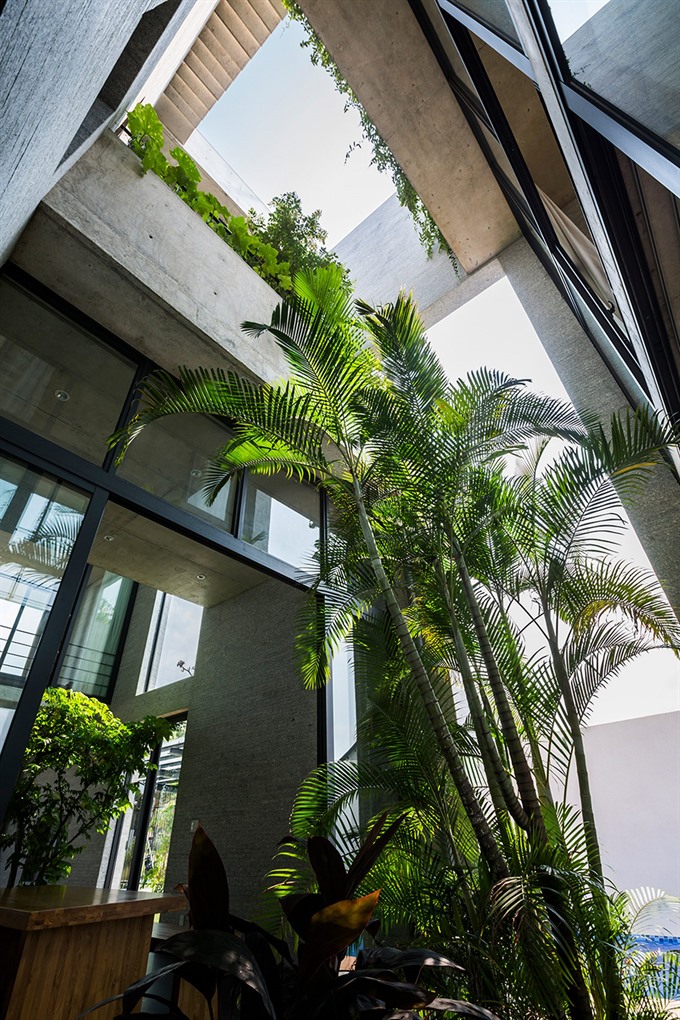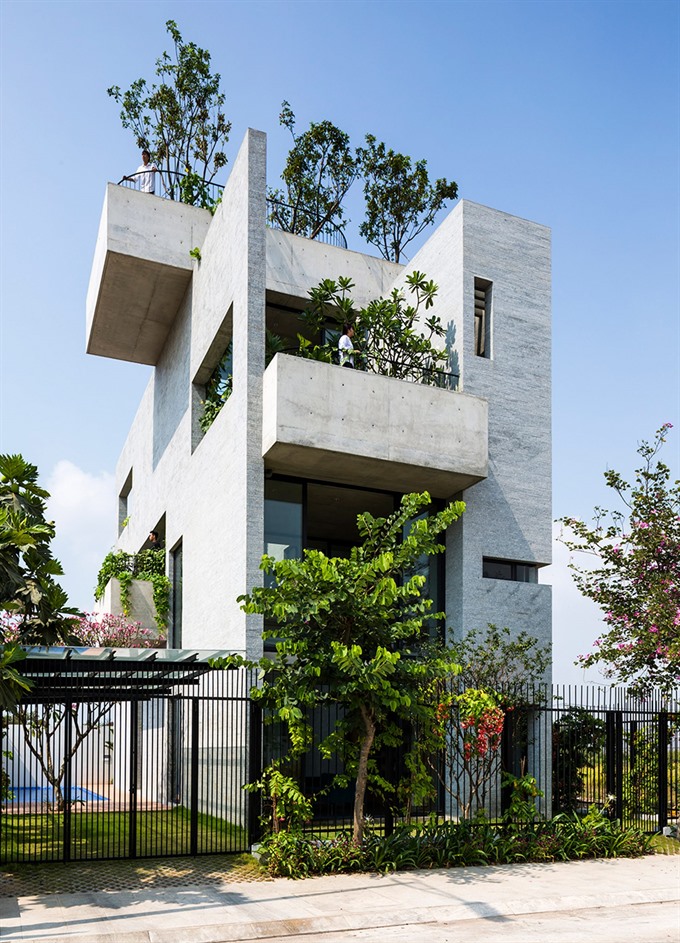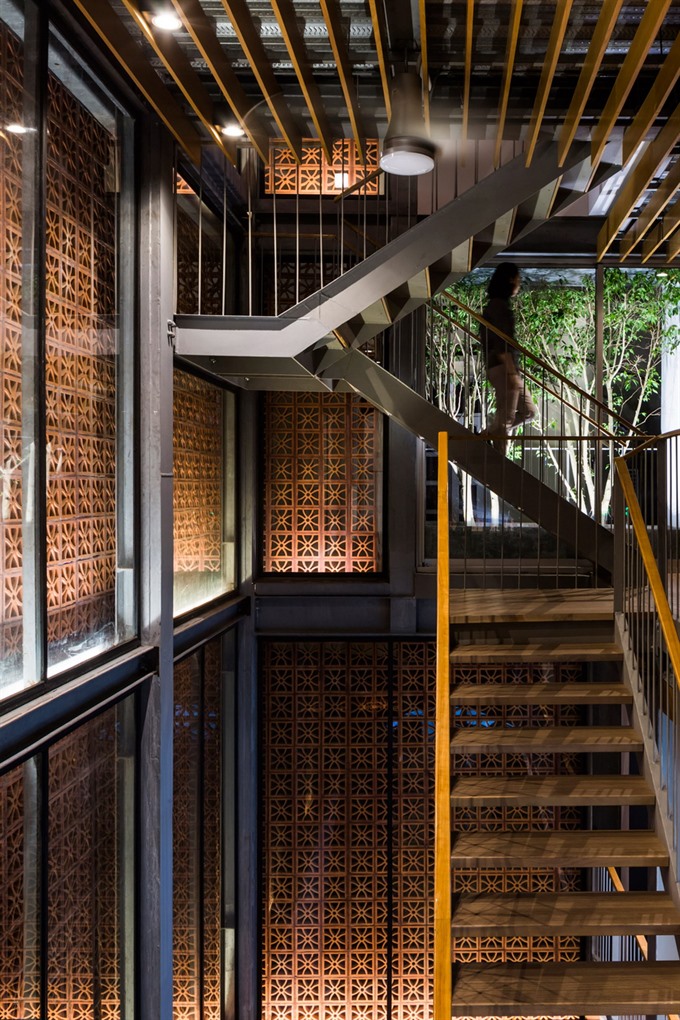Viet Nam News
HA NOI — Vietnamese architecture company VTN Architects has just received two prizes for two buildings in HCM City and Ha Noi at the International Architecture Awards 2018 (IAA) hosted by the Chicago Design Museum.
As many as 100 projects have been selected for awards among 380 entries sent to the IAA by the end of last year.
Binh House, one of the company’s building in a series themed houses for trees, has earned a prize in Multi-Family Housing category while The Lantern, a light equipment showroom of Nanoco Panasonic, won a prize in Retail/Showrooms category.
VTN designed Binh House for a family of three generations in HCM City, who wanted to feel connected within the home while also enjoying some privacy.
 |
| Fantastic foliage: At street level, the planting at Binh House ensures shade and privacy for the living areas, while large trees on the roof also help to prevent direct sunlight from overheating the building. |
The building features gardens stacked on multiple levels that are visible through openings in the concrete walls.
Binh House’s rooms are spread across a series of stepped levels interspersed with gardens and planters. Sliding doors enhance the connections between these indoor and outdoor spaces.
The staggered arrangement of the living room, dining area, bedrooms and study area provides views between these spaces that are always filtered through foliage.
This irregular vertical configuration will also help to maintain airflow through the building when other planned residences are completed alongside the house.
On the ground floor, the property’s entrance opens onto a lounge space separated from a dining area by trees and shrubs growing from a gravel garden.
 |
| Green house: Binh House was designed with lots of trees. |
At street level, the planting ensures shade and privacy for the living areas, while large trees on the roof also help to prevent direct sunlight from overheating the building.
A garden on the roof of the dining area can be planted with fruits and vegetables to provide a source of food for the family that recalls the traditional Vietnamese lifestyle.
Service spaces including the kitchen, bathrooms, stairs and corridors are positioned along the western edge of the house to prevent unwanted heat from reaching the most frequently occupied areas.
Sustainable and robust materials such as stone, wood and exposed concrete help to further reduce the building’s environmental impact, as well as its operational and maintenance costs.
The Lantern is a four-storey building occupying a 72-square-metre plot in Ha Noi’s Dong Da District. It is used as a showroom and gallery by Nanoco Panasonic Company.
To help the building stand out from the busy streetscape, as well as a row of trees in front, the architects gave it a decorative facade, using terracotta blocks with flower-shaped perforations.
 |
| Lots of layers: Inside the Nanoco Panasonic Showroom |
These blocks allow light to seep in gently. In daylight, they also form a canvas for different shadow patterns cast by the tree foliage, while by night they allow the building to glow.
A steel and glass structure is set behind the perforated facade. There is also a large void in the southern corner of the building, which ensures that daylight reaches the rear of all four floors, as well as the basement.
A staircase with wooden treads and a slender handrail occupies this space. The showroom is arranged around this stairwell on the three lowest levels, allowing visitors to view products while walking up and down the steps.
This gallery features a skylight that reveals a roof garden. There is also a concrete window seat that cuts into the perforated facade to let visitors perch and view the streetscape below.
VTN Architects is run by noted architect Vo Trong Nghia, who has received numerous international prizes and honours, including the World Architecture Festival Award, the ARCASIA award, the WAN 21 for 21 Award, and the FuturArc Green Leadership Award, among others. In 2012, he was named Architect of the Year in Viet Nam. — VNS